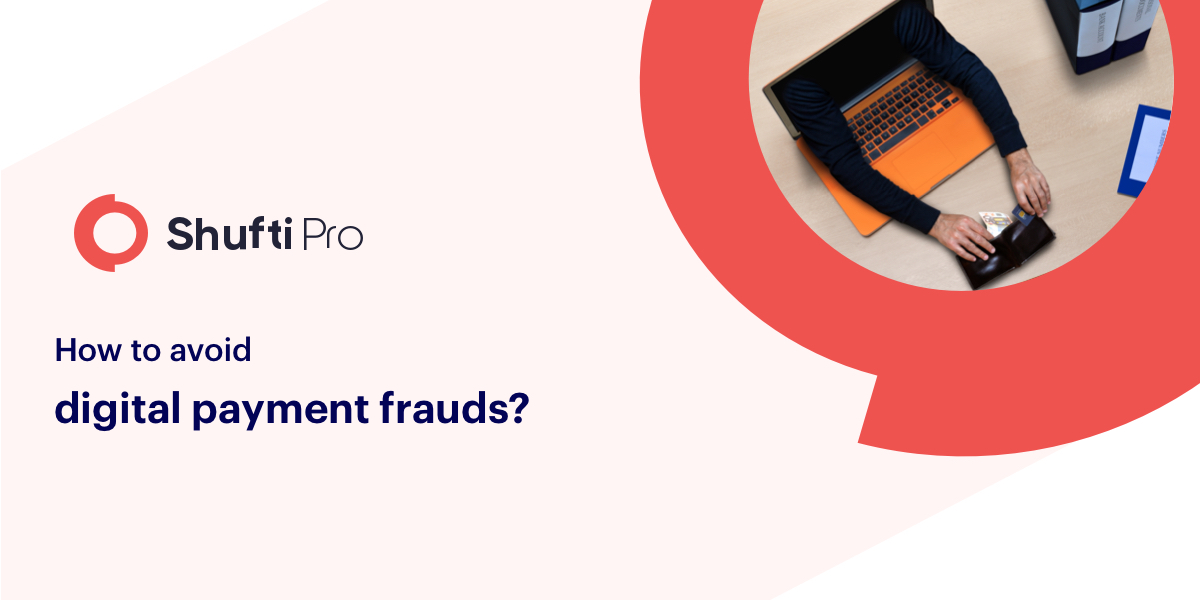4 Tips to avoid digital payment frauds

Due to the contingency caused by the rapid expansion of the Covid-19, online transactions have increased. Digital payments are gaining hype due to precautionary measures of not using cash and to stay at home.
However, the number of cyber fraudsters also increased, operating from sending an email requesting money for an emergency to scammers asking for donations posing as a legitimate medical organization or financial institution.
As cybercriminals become more creative in committing digital payment fraud, the best way to protect yourself from them is to stay informed. According to the Data Breach Index, more than 5 million records are being stolen on a daily basis, a concerning statistic that shows that fraud is still very common both for Card-Present and Card-not-Present payments. In this article, we will discuss 4 types of digital payment fraud and how to prevent these frauds.
How to prevent fraud in digital payments
Despite what we can imagine, fraud in digital payments is relatively abundant, however, it is possible to take proactive actions to prevent it:
To avoid this, recommendations are as follows:
- Use a chip card when making your purchases at the point of sale, inserting the card in the terminal or using contactless payments in terminals that support this technology. Contact your bank or issuer if they have not provided you with a chip card and/or the technology to make contactless payments.
- Only buy from recognized and reliable websites, entering directly from your browser and not through a link found on the website of a third party or in an email.
- Always make purchases from the websites that support stringent identity verification.
- Sign up for your bank’s alerts service to receive notifications of your payments or transactions in real-time by text message or email. These alerts allow you to verify the legitimacy of the transactions and contact your bank quickly if you receive an alert of an unrecognized movement.
- Make any clarification about a charge not directly recognized with the merchant only if you identify this establishment or service and make recurring payments on it, such as in transport applications, digital games and subscriptions to television, movies and/or music.
- Contact your bank immediately when you identify a transaction from an unrecognized merchant.
Learn how to watch out for cyber fraud
Cyber fraud refers to fraud that is carried out on the Internet using some malicious software in order to obtain your personal data, account numbers or passwords.
What can you do to avoid it?
- Never enter your bank’s website from links or quick accesses that come from emails, even if those emails come from your bank.
- Always type the bank’s website address directly into the search engine.
- Banks never request your passwords or financial information through emails. Therefore, do not reply to such emails.
- Do not download attachments from unknown addresses, they may be viruses.
- Try not to use computers or public networks to access your bank’s website or make transactions.
Manage your email well and avoid phishing
This is a type of scam in which the identity of some entity or organization is stolen in order to reveal your bank details, such as credit card numbers, identity numbers, your bank account, among others.
Most of the time these messages include a fraudulent link but similar to the original. On this fake website that may have a design identical to that of the entity, they are looking to replicate, save the access data you enter by stealing it.
Combat phishing with these tips:
- Any request for personal information by email is considered suspicious.
- Do not respond to those messages, do not press any of their links, or enter information on suspicious websites.
- Verify the legitimacy of the information request by contacting the telephone number of your bank.
- Report suspicious emails or websites to your financial institution.
- Be careful with the phone: sometimes fraudsters call your phone and pose as financial, commercial or even charity entities. Be careful, it may be a fraud.
Beware of Vishing Attacks
This type of fraud is carried out by means of telephone calls in which the interlocutors pose as representatives of card companies, financial institutions, establishments and other organizations, informing that a payment has been withheld, that a contest has been won, or promotion and that personal and financial data must be given to claim them, which is known as Vishing.
Tips for Overcoming Phone Fraud/Vishing
- The financial institutions never call cardholders to request personal information from their accounts.
- Watch out for notifications that you have won a prize in a contest in which you have not entered.
- Never provide information unless you are the one who initiated the communication.
- Don’t feel compelled to provide card numbers over the phone.
- Ask for details: If the caller can’t answer your questions, it’s a trap.
- Instead of asking for a “call back number, ” look for information about the calling institution, along with your legitimate phone number, on your own.
- Inform your card issuer of these requests for personal information by calling the number on the back of the card.
How Can Shufti Help?
Shuti Pro’s AI-powered identity verification system digitally verifies all your customers within 15 to 60 seconds. The real-time verification performs various identity verification checks including document verification, face verification, biometric authentication, and consent verification. All these measures make sure that every customer you onboard is legitimate. Digital patent frauds have increased over time as technology has made numerous advancements. Fraudsters have figured out a way to surpass verification checks. Hence, there is a need for a solution that can prevent fraudsters from fulfilling their malicious intent. Digital identity verification system can help banks in fighting crimes and preventing criminals from causing any trouble.
Need more help? Get in touch with out experts.

 Explore Now
Explore Now













